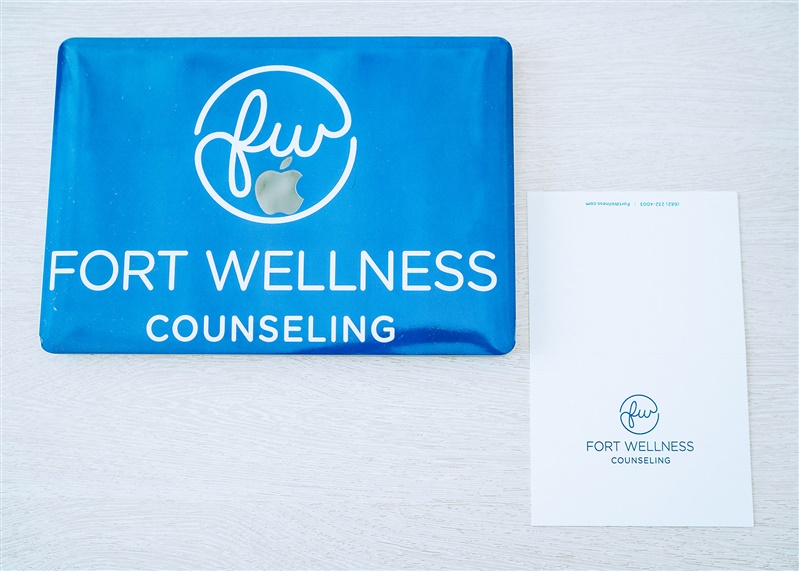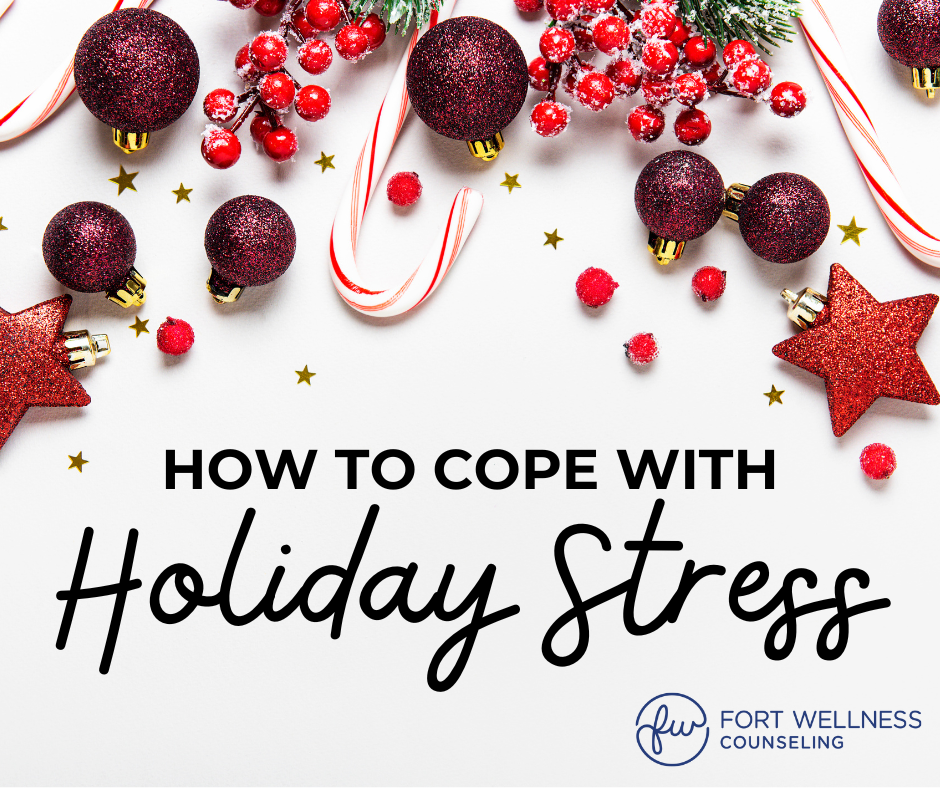
Family Vacations & Your Mental Peace: Strategies for Stress-Free Summer Travel
Family Vacations & Your Mental Peace: Strategies for Stress-Free Summer Travel By: Rane Wallace, MS, LPC, LCDC, SAP Of course, traveling with your family is

Have you or a loved one recently had a baby? If so, then you might already know how becoming a parent can trigger all sorts of feelings. From excitement and joy to overwhelming anxiety, postpartum depression is typical for new moms (and dads!) to experience a wide array of emotions.
While most of those emotions are not unfamiliar, there is a special kind of depression that affects new parents, specifically. Postpartum depression, as it so happens to be called, is common, and it affects roughly 1 in 10 women after they have given birth. (Certain studies claim it actually affects 1 in 7 women.)
However, what is postpartum depression? And what are the symptoms of postpartum depression? And more importantly, how should new parents cope?
As a Licensed Professional Counselor and therapist, I am here to answer all those questions and more. Keep reading to learn what is postpartum depression and my top tips for overcoming it.
So, what is postpartum depression anyways? Well, it’s best to begin by explaining something known as the “baby blues.” The “baby blues” are a brief period of mood swings, crying spells, anxiety, and sleeping troubles that many new moms experience shortly after giving birth.
Usually, they last just a few days (2 weeks at the most), but postpartum depression occurs when symptoms stretch beyond that. Seen as a more severe, long-lasting form of the “baby blues,” postpartum depression can interfere with a mother’s ability to care for her baby and handle everyday tasks.
So, is it the “baby blues” or postpartum depression? While they are similar, the symptoms of postpartum depression are usually more intense and last longer. Normally, symptoms develop within the first few weeks of giving birth. However, some mothers experience them as early as pregnancy or as late as one-year post-birth.
While this list is not all-encompassing, the symptoms of postpartum depression include:
Postpartum psychosis is a rare condition that typically develops within the first week of giving birth. It only affects 1-2 out of 1,000 new mothers, and it is usually preceded by a personal or family history of bipolar disorder and/or a previous psychotic episode.
The symptoms of postpartum psychosis include:
Are you or a loved one suffering from postpartum depression? Having helped hundreds of clients conquer their mental health issues, here are my top tips for overcoming postpartum depression:
The first step to overcoming your postpartum depression is to build a strong bond with your baby. Postpartum depression can significantly impact early bonding, yet meaningful parental attachment is necessary for a baby’s behavioral and cognitive growth.
Of course, parental bonding also has a significant impact on the mother. Having close contact with an infant releases oxytocin (aka the love hormone), which makes parents feel happier, care more, and become more sensitive to the feelings of others.
To strengthen your and your baby’s bond, I recommend skin-to-skin contact, giving your baby a massage, smiling at your baby, and singing to him/her.
If you’re struggling with postpartum depression, it is essential that you take the time to care for yourself. Make sure to nap whenever your baby naps, spend some time in the sunshine, eat all your omega-3s (found commonly in fish), and practice a self-care regimen.
It can be tough to exercise when there’s a newborn around. However, studies have shown that physical activity is an excellent way to combat postpartum depression. If you’re not sure where to start, walking for just 30 minutes a day can have a tremendous impact on both your mental and physical health (and you can push a stroller while you do it).
Remember that you don’t have to face postpartum depression alone. Humans are social beings and fostering positive social interactions will help reduce any stress and anxiety that you might be feeling.
If finding a large group of friends sounds overwhelming to you, simply focus on building one or two solid relationships. These relationships can be found anywhere. Seek out friends, neighbors, coworkers, other new parents, or a trusted mental health counselor.
Both psychotherapy and meditation can greatly reduce the symptoms of postpartum depression. As a professional therapist, I can provide a safe space for you to discuss your concerns and feelings. Not only that, but I can equip you with the techniques and tools to foster long-term change.
One of my favorite tools to combat depressive feelings is practicing meditation. If you are unsure how to begin—or uncomfortable practicing on your own—I would be more than happy to walk you through the process.
If you or a loved one is struggling with postpartum depression, I hope that today’s blog post was helpful. As a professional mental health therapist, it has become my life’s mission to help people overcome their feelings of depression and anxiety.
If you have tried overcoming your postpartum depression and are still struggling, then I encourage you to schedule an appointment at my office. With over a decade of experience helping people overcome their mental health struggles, I am confident in my ability to help you.
Trust me when I say that a brighter future awaits. Schedule your appointment today.

Family Vacations & Your Mental Peace: Strategies for Stress-Free Summer Travel By: Rane Wallace, MS, LPC, LCDC, SAP Of course, traveling with your family is

Mental Health 101: Debunking Common Myths By: Rane Wallace, MS, LPC, LCDC, SAP Every May, Mental Health Awareness Month raises awareness and advocacy for people

Medical Trauma: Understanding and Healing from Difficult Healthcare Experiences By: Rane Wallace, MS, LPC, LCDC, SAP Over the years, I’ve come to understand that for

Social Media Depression: Beyond FOMO to Algorithm-Induced Mood Change By: Rane Wallace, MS, LPC, LCDC, SAP I’ve seen this happen so many times with patients,

How to Wind Down at Night: Simple Sleep Hygiene Tips By: Rane Wallace, MS, LPC, LCDC, SAP Sleep hygiene might sound like a fancy term,

Pregnancy and Postpartum Anxiety Treatment in Fort Worth By: Rane Wallace, MS, LPC, LCDC, SAP Have you or a loved one experienced anxiety during pregnancy

Breaking the ‘New Year, New Me’ Mindset: A Guide to Sustainable Change By: Rane Wallace, MS, LPC, LCDC, SAP In my years as a therapist,

How to Support a Partner with Chronic Illness: A Mental Health Perspective By: Rane Wallace, MS, LPC, LCDC, SAP Living with a chronic illness can

EMDR for Attachment Issues: Building Healthy Relationships By: Rane Wallace, MS, LPC, LCDC, SAP When you hear “EMDR therapy” (Eye Movement Desensitization and Reprocessing), you

How to Deal with a Narcissistic Partner By: Rane Wallace, MS, LPC, LCDC, SAP Do you ever feel like your partner thinks they’re better than

How to Recover from Burnout By: Rane Wallace, MS, LPC, LCDC, SAP Burnout is a common struggle in today’s fast-paced world. Life’s relentless demands can

The Benefits of Attending Couples Counseling By: Rane Wallace, MS, LPC, LCDC, SAP There’s a misconception about couples counseling – that it signals the end

Things to Know About Individual Counseling in Fort Worth, TX By: Rane Wallace, MS, LPC, LCDC, SAP May is Mental Health Awareness Month, a good

Everything You Need to Know About EMDR Therapy By: Rane Wallace, MS, LPC, LCDC, SAP Have you heard about EMDR therapy and want to learn

What is Nature Therapy? (And Why You Should Be Doing It!) By: Rane Wallace, MS, LPC, LCDC, SAP Let’s face it: there’s just something about

The Benefits of Virtual Therapy in Texas By: Rane Wallace, MS, LPC, LCDC, SAP Technology is changing everything, and healthcare is no different! Thanks to

How to Get Over a Breakup By: Rane Wallace, MS, LPC, LCDC, SAP Breaking up with a romantic partner is painful – no matter the reason

How to Set New Year’s Resolutions By: Rane Wallace, MS, LPC, LCDC, SAP How to Set New Year’s Resolutions Setting goals gives us a sense

How to Cope with Holiday Stress By: Rane Wallace, MS, LPC, LCDC, SAP Say No to Prevent Burnout There are an abundance of obligations that

Trauma Therapy in Fort Worth: Types, Benefits & More By: Rane Wallace, MS, LPC, LCDC, SAP Believe it or not, an estimated 60% of men

How to Communicate Better in Relationships By: Rane Wallace, MS, LPC, LCDC, SAP Whether with coworkers or your significant other, the ability to communicate effectively

How to Prevent Seasonal Affective Disorder (SAD) By: Rane Wallace, MS, LPC, LCDC, SAP If you’re struggling with winter blues, know you’re not alone. SAD

What is a Functioning Alcoholic? By: Rane Wallace, MS, LPC, LCDC, SAP When someone is deemed a ‘high-functioning alcoholic,’ they’re able to carry out daily

How to Help Yourself – And Others – with Suicidal Ideation By: Rane Wallace, MS, LPC, LCDC, SAP September is Suicide Awareness Month. And while

32 Questions to Strengthen Your Relationship By: Rane Wallace, MS, LPC, LCDC, SAP When was the last time you had a meaningful conversation with your

The Fawn Response: How Trauma Can Lead to People Pleasing By: Rane Wallace, MS, LPC, LCDC, SAP Do you often find yourself putting the needs

How to Overcome ‘Hangxiety’ (Post-Drinking Anxiety) By: Rane Wallace, MS, LPC, LCDC, SAP Thought the consequences of drinking heavily were merely physical? Unfortunately, you’ll have

What is Box Breathing? Plus Tips for Beginners By: Rane Wallace, MS, LPC, LCDC, SAP Ever heard of box breathing? This popular relaxation technique involves

Do Mindfulness Exercises for Anxiety Work? By: Rane Wallace, MS, LPC, LCDC, SAP Do mindfulness exercises for anxiety work? If you (or people in your

What is Trauma Bonding? 4 Warning Signs By: Rane Wallace, MS, LPC, LCDC, SAP If you’ve ever been in an abusive relationship and felt bonded

Why Do We Cry? 4 Reasons and Crying Benefits By: Rane Wallace, MS, LPC, LCDC, SAP There’s no getting around it – crying is part

What Is Habit Stacking? (And How to Do It) By: Rane Wallace, MS, LPC, LCDC, SAP Supporting our mental health is one of those goals

5 Tips for Living with Someone with OCD By: Rane Wallace, MS, LPC, LCDC, SAP While living with OCD (obsessive-compulsive disorder) can be demanding, living

What is Assertive Communication? By: Rane Wallace, MS, LPC, LCDC, SAP So, what is assertive communication? Well, in a nutshell, this communication style aims to

PTSD Counseling in Fort Worth: Proven Coping Strategies By: Rane Wallace, MS, LPC, LCDC, SAP For those who didn’t already know, post-traumatic stress disorder (PTSD)

Brainspotting vs. EMDR: What’s the Difference? By: Rane Wallace, MS, LPC, LCDC, SAP According to the National Council for Mental Wellbeing, 70% of American adults

Mindfulness Exercises to Strengthen Your Recovery By: Rane Wallace, MS, LPC, LCDC, SAP Are you recovering from alcohol and/or substance abuse? Self-improvement is a life-long

How to Find a Counselor in Fort Worth By: Rane Wallace, MS, LPC, LCDC, SAP Are you considering therapy? If so, finding a counselor in

How To Not Be Codependent In A Relationship By: Rane Wallace, MS, LPC, LCDC, SAP Wondering how to not be codependent in a relationship? Sometimes

What is Parental Anxiety? Coping Tips from a Therapist By: Rane Wallace, MS, LPC, LCDC, SAP Every parent wants to shield their child from danger

What is EMDR Therapy? By: Rane Wallace, MS, LPC, LCDC, SAP Ever heard of eye movement desensitization and reprocessing therapy? More commonly known as EMDR,

8 Proven Tips to Sleep Better at Night (and Improve Your Mental Health) By: Rane Wallace, MS, LPC, LCDC, SAP Struggling with restless nights and

How to Have a Healthy Relationship with Social Media By: Rane Wallace, MS, LPC, LCDC, SAP In today’s world, there’s no escaping the presence of

What Is The Goal of Psychotherapy? By: Rane Wallace, MS, LPC, LCDC, SAP Have you been considering psychotherapy? The start of a new year is

What is Brainspotting Therapy? By: Rane Wallace, MS, LPC, LCDC, SAP Brainspotting therapy is a kind of alternative therapy that is gaining immense popularity in